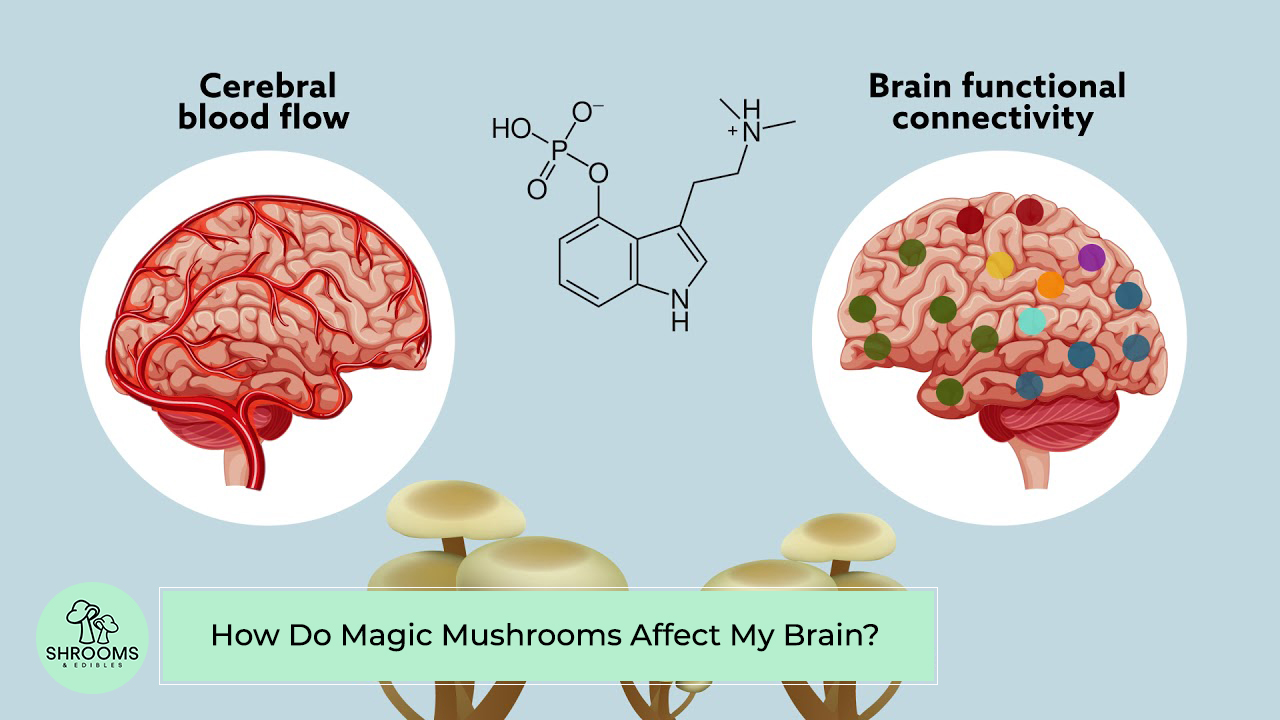- HIGHEST QUALITY SHROOMS & EDIBLES FOR THE LOWEST PRICE | FREE SAME-DAY SHIPPING ON ALL ORDERS OVER $130

Your brain does not have a reset button. However, the more scientists think about magic mushrooms, the more they understand they are as close to a reset button as they can get.
For thousands of years, people have been going on trips due to magic mushrooms and their psychedelic effects, but scientists have only recently begun to understand what happens in your brain when you take mushrooms. Psilocybin, the active ingredient in mushrooms, has been shown in studies to help with a variety of mental health problems, including extreme depression.
Psilocybin, a hallucinogenic compound found in certain mushrooms, has the ability to reshape brain cells and is showing growing promise as a treatment for addiction and depression. Scientists are now better about how it all works thanks to new brain models.
Research, published in 2014, by the Imperial College London found that psilocybin, a serotonin receptor, generates a stronger communication between the parts of the brain that are usually separated from each other. This research is based on brain images that have been taken from some participants who were either injected with psilocybin or a placebo. The photos were used to construct a “whole-brain connectome,” which depicts all of the physical neurons in the brain as well as the movement of the neurotransmitters that are shuttled back and forth.
Neurons are continuously firing and neurotransmitters are moving well-trodden pathways through the human brain on a daily basis, similar to vehicles on a highway. Those networks are “destabilized” on magic mushrooms. New networks appear in tandem, according to previous studies. It’s as if those traveling on the freeway were given free will to abandon the highway and drive back roads to new destinations. Scientists are starting to figure out how it works. Psilocybin (along with other psychedelics such as DMT) mimics serotonin, a neurotransmitter linked to feelings of pleasure and affection. According to this study, these mushrooms affect more than just serotonin flow in the brain.
Magic mushrooms can lead to feelings of calmness that are identical to the results of taking small amounts of marijuana, as stated by the National Institute on Drug Abuse.
More concretely, magic mushrooms influence the brains’ prefrontal cortex, the part of the brain that controls abstract thinking and has an important role in mood, sense and knowledge.
Many people that used mushrooms have confessed that they felt as if they were seeing sound and hearing colours. One of the first to assign this effect to the way psilocybin changes communication across brain networks was the study made in 2014.
Only 2 milligrams of the drug showed that can conduct a stronger brain activity in particular regions which in their natural form were never or very rarely engaged is such “cross-talk”.
David Nutt, a neuroscientist at Imperial College London who co-authored a 2012 thesis on psilocybin, discovered improvements in the brain activity patterns of people taking the drug.
Although certain parts of the brain were more prominent, others were silenced, including one thought to be involved in preserving our sense of self.
The links between brain circuits in this sense-of-self area are too powerful in depressed people, according to Nutt. However, loosening those ties and establishing new ones, according to the theory, may provide considerable relief.
Users have revealed that they experienced intense anxiety and disturbed this feeling lasted sometimes for just a few minutes and on other occasions for a few hours.
Only eventually with the time passing, they said that the feeling started to fade and the sense of relief kicked in. Furthermore, this experience of these feelings may vary for each person.
A side-effect of the mushrooms is also the idea of the time being distorted from time to time it might appear that time has been slowed down and other times it appears as if it has been quickened.
Based on the National Institute on Drug Abuse, the out-of-body experiences that users might observe themselves typically begin from 20 to 90 minutes and it might last until 12 hours.
These experiences might seem surreal and they vary based on the amount you take along with your mood and personality at the moment of use.
After some psychologists inducted higher doses of mushrooms in a small group of healthy volunteers dosed with psilocybin, the attendees confessed they felt more open, more imaginative, and more sympathetic. Almost two-thirds of the volunteers a year later said the experience had been one of the most crucial in their lives, nearly half of them was admitted that they had a higher score on personality tests of openness than they had before the drug.
It’s tempting to believe that scientists will “map” the effects of psychedelics on the brain. For example, two studies published in 2012 in PNAS and the British Journal of Psychiatry found that psilocybin decreases brain activity in the medial prefrontal cortex, which is involved in memory and decision-making, as well as the posterior cingulate cortex, which regulates your sense of identity.
However, according to Doss, studies of the brain’s function when using psychedelics are complicated and often poorly planned. Many factors, including your underlying health and mood, personality traits, and physical surroundings, influence how your brain and body react to a trip, according to Dr. Sansom.
Despite the fact that there are still many unknowns about psilocybin and the brain, the compound holds a lot of promise. “An increasing number of clinical trials indicate that psychedelics may have the potential for treating a variety of mental health disorders, including depression, OCD, addiction, and even end-of-life anxiety in terminally ill patients,” says Spriggs. Indeed, tune in and turn it on.